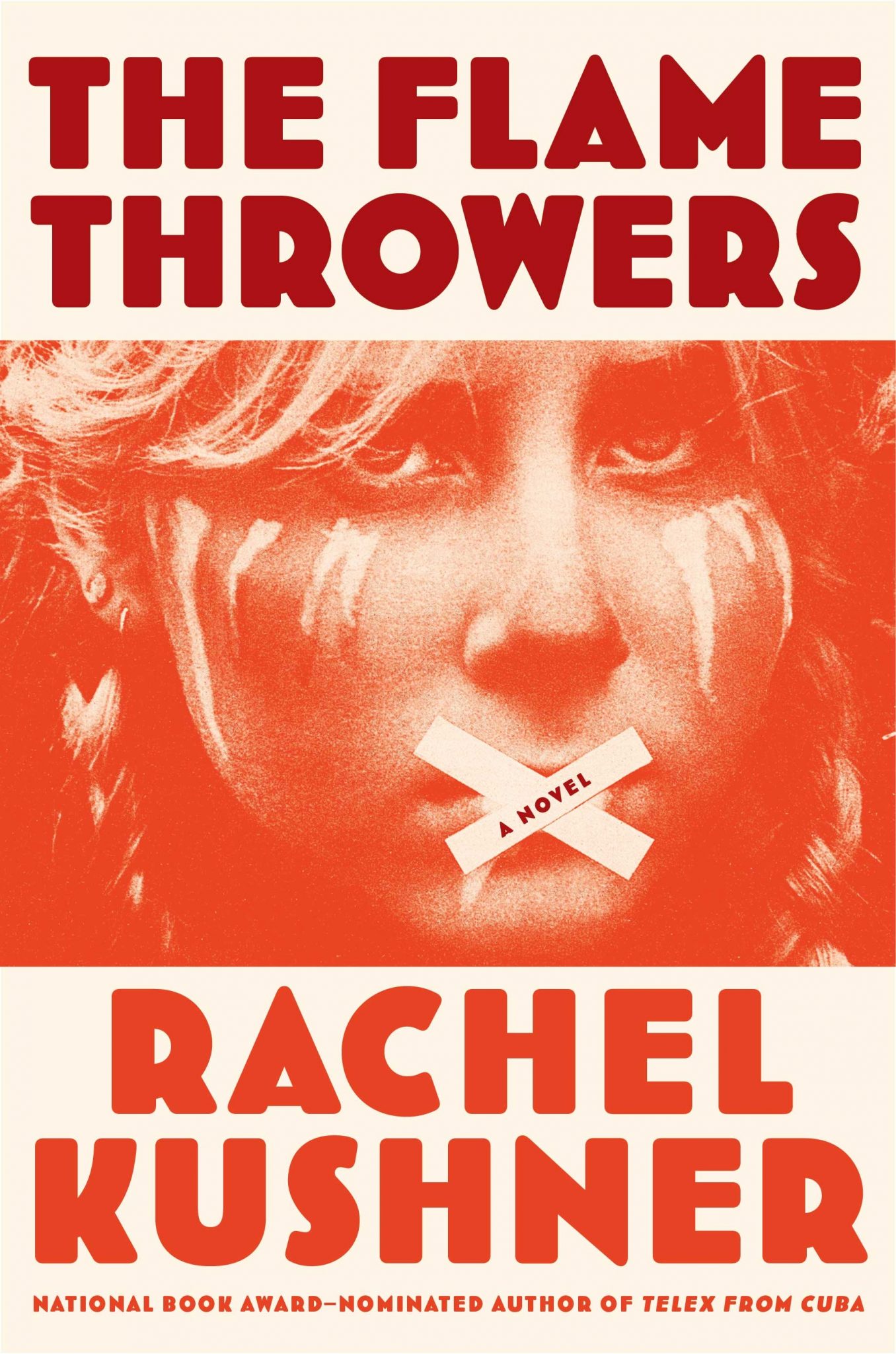The Flamethrowers, which unites scenes from a somnolent, insular artworld with episodes of bomb-flinging struggle against inequality, is only nominally concerned with mid-1970s America and Italy. It’s clear that Rachel Kushner, the Los Angeles-based writer and critic whose outstanding second novel this is, is also talking (or, really, asking) about today: what’s at stake and what might be possible in art, life and their mythic overlap.
The book’s heroine, known as ‘Reno’ for her Nevada hometown – the first of many bruising depersonalisations of women here – is an early-twenties fine art graduate and ingénue who, at the outset, like a modern-day Futurist, is motorcycling fast across America and calling it drawing in space. In New York she hooks up, after a couple of false starts, with Sandro, a forty- something, Donald Judd-like Italian Minimalist and scion of the Valera family, which manufactures the very motorbikes Reno rides. In periodic flashbacks, Kushner establishes how Valera Sr. set up his industrial empire – himself inspired by contact with the Futurists in Milan, and with the Italian fascists – and the brutality towards workers that underwrote it and continues to. Whether Kushner is summarising the hazard-strewn life of a Brazilian rubber- tapper for the tyre industry, the grim conditions in the Italian factories or the gilded ennui of the Valera family, the message comes over loud and clear. In picaresque reports from NYC, meanwhile (openings, bitchy dinners, boozy nights in downtown bars, casual sexism, attempts to have sex on Gordon Matta-Clark’s hacked-up pier), we see a mostly politically disengaged artworld that has literally emerged out of industrial Modernism – the minimalist style in general and Sandro in particular, his career choice seemingly enabled by something like blood money.
Scenes of an increasingly radicalised Italy – galvanised by the Red Brigades and, given that this is 1976–7, the newly jabbing theorists of Autonomia – tighten the screws, the Valera factory becoming a flashpoint for violent protests. Reno, who through various chancy episodes becomes connected to the Valera motor-racing team, finds herself in Italy with Sandro and his family, sequestered in a Lake Como villa under threat of reprisals from the working classes (which do come later with tragic consequences), and gets caught up in a violent demonstration – which she wants to film, still seeking to somehow find a role for art in all this. Sandro ends up lost and, finally, stays in Italy; Reno ends up first with an on-the- run Italian revolutionist and finally alone, making some kind of decision not to be at his beck-and- call. Points like this are where the personal becomes political in The Flamethrowers, on one level a strongly feminist novel, as male–female relations feel paradigmatic for a panorama of inequity. Yet Kushner doesn’t pretend to have the answers, just open eyes and some pertinent questions, and her book doesn’t end with any kind of pat bromide concerning the revolutionary function of art. Is Reno still an artist at the end of it? Is Sandro? What’s apparent is that both still need to get somewhere, work something through – both have had a wakeup call, an abstract clarification, one that seemingly signals the author’s unease at art’s remove from politics yet inseparability from dirty realities, and her reservations about its agency.
We’re carried to those questions, anyway, because Kushner is one heck of a writer, a prose stylist of diamond-hard dazzle. The research- driven, poetically framed detail work that powers The Flamethrowers is electrifying, whether sensuously describing the flammability of nitrate film, motorbike speed trials in the desert or the violent campaigns of fictional 1960s revolutionists The Motherfuckers, with their excellently named leader, Fah-Q; or creating fluent hybrids of real and imaginary artists. (In a dreamily off-kilter interweave, roman-à-clef versions of William Eggleston, Douglas Huebler and Filippo Tommaso Marinetti sit alongside explicit references to historical artists like Robert Smithson and fill-in-the-blanks references to others, such as Chantal Akerman.) Kushner also manages, improbably, to create churning propulsion at the same time that one routinely has no idea where the book is going; and, in Reno, she builds a character confused, keen and sensitive enough that the sense of being young, ambitious and put-upon in the modern world comes across startlingly well. Not that Kushner delivers a faultless performance: she occasionally forgets her characters are speaking words rather than reciting prosy paragraphs, and the plot intermittently turns on improbable coincidences that would suggest New York is a city of about 43 people. But The Flamethrowers, wherein revolutionary energy is something that modernity has made ineradicable, overrides such caveats. It’s a brilliantly sustained airing of righteous grievances.
This article was first published in the Summer 2013 issue.
